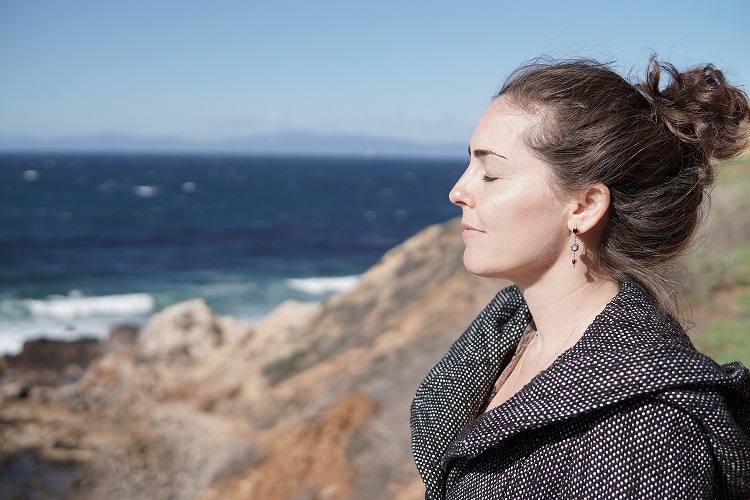Why self- and community care is no longer a “nice-to-have.”
This guest post is written by Jennifer Lentfer. Jennifer is a poet, leadership coach in the global development sector, the creator of the blog how-matters.org, and an advisory circle member of Healing Solidarity. Join Healing Solidarity’s 2021 conference “Making different choices,” a virtual space with collective care sessions and “in-between conversations” dedicated to re-imagining international aid and development starting Monday, October 11th through Friday, October 15th, 2021. More information and sign-up at healingsolidarity.org.

I could feel the anxiety mount as I returned to my inbox after only a half hour meeting and found 10 new emails. In the past, I would have pushed past that feeling, ignored it, kept working, worked late to respond to everything. Instead, in this moment, I chose to walk away and wrote myself a mantra for when it happens again.
Because it will happen again.
My struggles with self care, which I wrote about on my blog in 2016, show you the transformation I’m courting. Simpler times, 2016. No insurgents storming the capital or despotic leaders living down the street from me in Washington, D.C. then. Not yet the #AidToo upsurges, the COVID-19 pandemic, nor the global #BlackLivesMatter uprisings. Not yet a media landscape that magnifies fear and foments polarization 24/7.
Now it seems that the stakes have been raised. Self care is no longer a luxury, nor is it even negotiable. It is, as Audre Lorde explained, resistance. She wrote, “Caring for myself is not self-indulgence, it is self-preservation, and that is an act of political warfare.”
In a world that does not fully recognize my humanity, taking care of myself and extending that care to others in my community is revolution.
And the revolution doesn’t come easy, nor quickly. At this point, if I don’t carve out enough recharge time for myself, my work and my writing struggles. But more importantly, my entire team struggles then too. We’re in this together, after all.
Self-care for me now is ultimately about self-love. Community care (what most of us really need – belonging, safety, to feel less alone) is ultimately about being in relationship – showing love to each other, being willing to admit that we can’t do everything ourselves, and allowing ourselves to be cared for by others.
Do we need so much “self-care” if we’re no longer living in isolated, self-centered ways?
My work is often to disrupt and complicate narratives that portray the “hyper,” escapist expat aid worker or the nonprofit martyr/savior archetype with “helping profession syndrome,” but still, some deeper questions are required. When I love myself, when I allow my community to love me, I can admit that all that overworking helped cover up a lot of experiences and feelings from which I was running.
In many places where the political, environmental, economic threats and issues are so acute, there is no safety.
Turns out there never was.
But thank goodness, I am loved. And now I have this mantra to remind me of that:
Let me rest in my overwhelm. Let me shift these thought patterns. There is enough. Enough time. Enough resources. Enough creativity. Enough joy. For me. For us. I am not diminished by the enormity of suffering and inequality around me. I am not diminished by the requests coming my way. And I need not aim to be indispensable. I already am. Let me aim for optimal functioning, with love, with enthusiasm, with spaciousness, with enoughness, with creation and community at the center. Every time those shrinking thoughts creep up, guide me Lord/Universe/Gaia to walk away, regroup, feel into the possible, and return, return, return. I am love. I am fierce, mother love. I am open, innocent, child love. I am not defined by requests of me. I am guided by the vision we are bringing forth. I am living into a new world. We are redefining. I can see what’s possible. All the rest are details.





